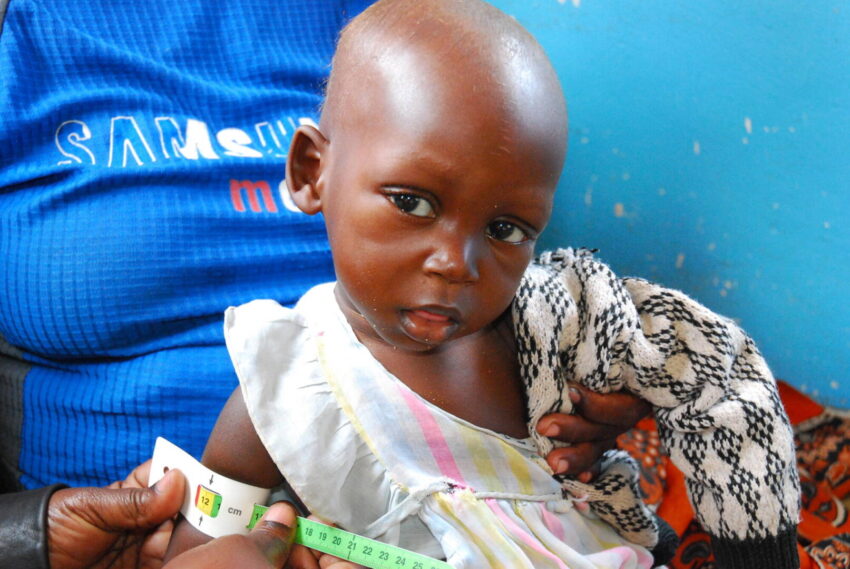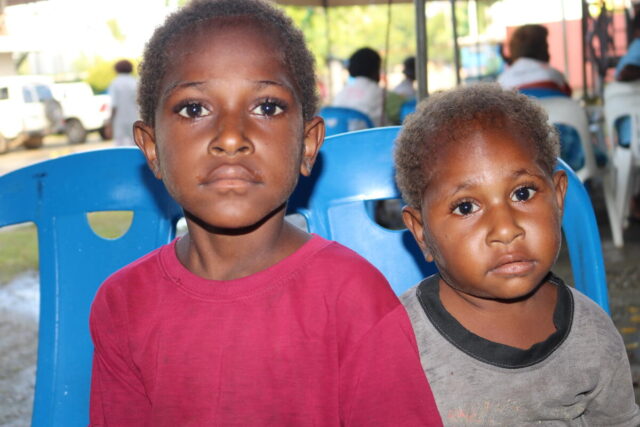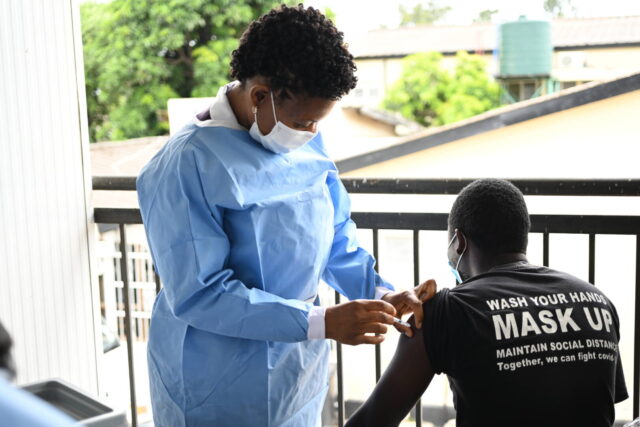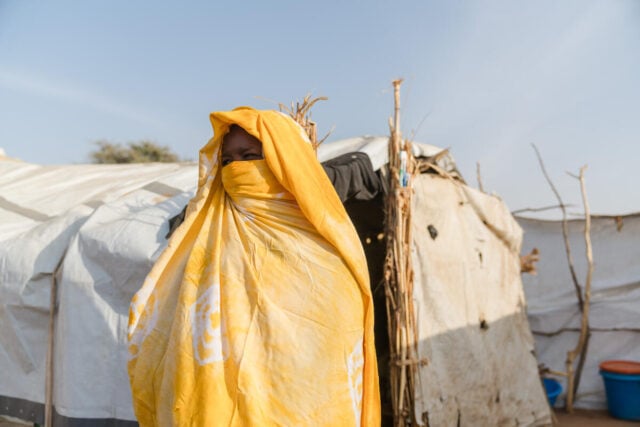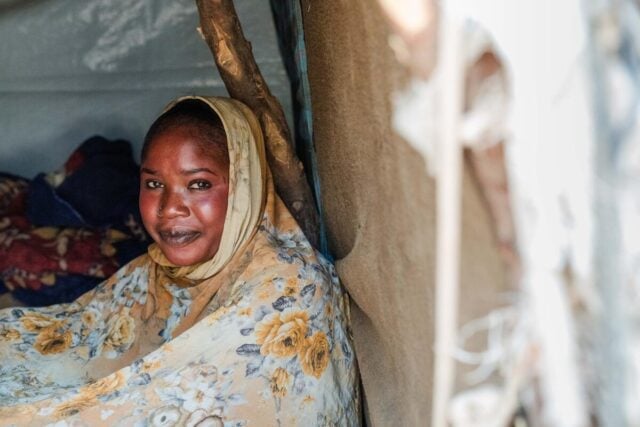When Swangirai was 11 months old, he arrived at Siansowa rural health center in southern Zambia with his mother, Harriet, who was overcome with worry. Wrapped in a chitenge (African fabric) and fastened onto his mother’s back, Swangirai cried relentlessly. “I have tried everything all the way to calm him down but he can’t stop,” she said.
Swangirai’s uncontrollable tears drew inquisitive eyes. Harriet unwrapped him from her back to calm him as she sat at one end of the concrete benches built into the clinic walls.
“According to our tradition, I am not supposed to breastfeed when I’m carrying another baby in the womb,” said Harriet, who was six months pregnant at the time. “But because I already made that mistake, he breastfed before I realized that I was pregnant again; that’s what has caused him to start suffering from masato.” Masato is a disease that many in the local community believe is caused by breastfeeding while pregnant. Harriet described the signs of masato — symptoms that also correspond to malnutrition: “His feet, face, and hands started to swell.”
Assigning blame to a nursing mother for her child’s symptoms is all too common: Another traditional belief holds that the swelling of a baby’s hands, legs, and face can be caused by a breastfeeding mother’s infidelity. As a result, Zambian mothers whose children experience these conditions are often oppressed by their communities, their families, and particularly their husbands.
A way forward
Betty Thewo, World Vision’s nutritionist coordinating the Community Management of Acute Malnutrition (CMAM) program at the time, began to examine Swangirai. A mid-upper arm circumference (MUAC) measurement showed that Swangirai was in the yellow category, signifying moderate acute malnutrition.
“The child needs special feeding to address the situation,” Betty explained. “In his current condition, his immune system has been weakened, exposing him to other sicknesses like the diarrhea which he is also suffering from.”
Betty broke the news to Harriet that Swangirai was experiencing malnutrition, as opposed to masato. “He is crying because he is hungry; he needs food to eat. He will right away start feeding on Plumpy’Nut® and you will see how everything will change about your son in less than 12 days,” Betty assured Harriet.
Plumpy’Nut® is a form of ready-to-use therapeutic food (RUTF). The peanut-based paste is packed with nutrients to help malnourished children regain their strength. Sure enough, after a packet of Plumpy’Nut® was opened, Swangirai ceased crying. Harriet squeezed the paste onto one of her fingers to feed him. To the amusement of everyone who was watching, Swangirai quickly ate the entire packet.
Swangirai became one of 40 children whose families were given Plumpy’Nut® to use at home to continue to help their children recover from malnutrition.
“Now I understand that my child was hungry,” Harriet said. She explained that flash flooding and drought-like conditions in the region had inhibited her farming, the family’s main source of income.
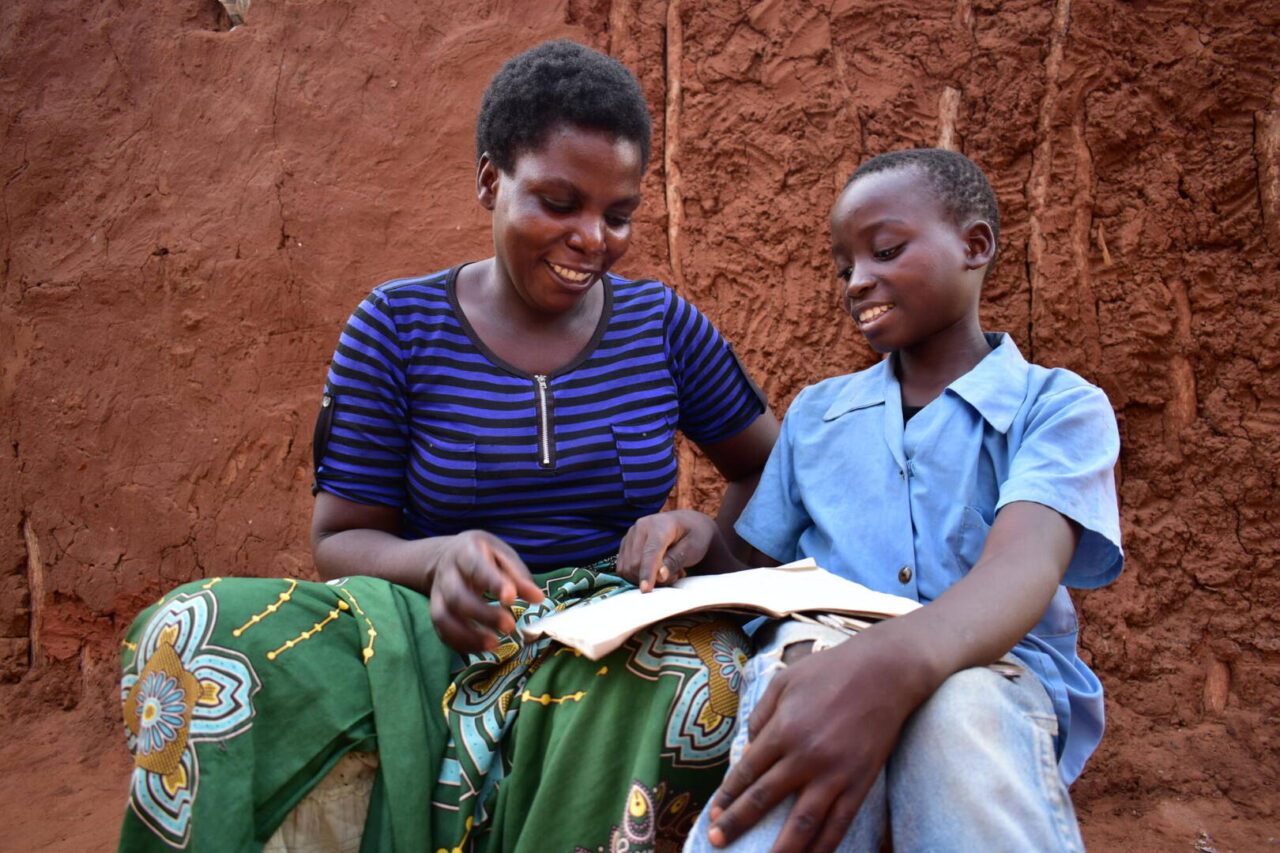
Eleven years later
The mid-morning temperature surges to 86 degrees Fahrenheit. Swangirai joyfully plays with friends, taking refuge from the heat under a tree that sits less than 10 feet from his family’s home.
“Everybody loves him — his fellow children and adults. He is humble, kind, and hardworking. This child stands as the sure hope for our family; everything about him is unique,” shares Lonely Mweela, 40, who is now Swangirai’s stepmom. She’s sitting outside of their home and calls Swangirai over to look through photos taken 11 years earlier in the World Vision clinic where he was treated for malnutrition.
Swangirai falls silent when he realizes he’s the small boy in the photos being shown to him.
“I rejoice having seen my childhood pictures. The pictures mean a lot to me — they have helped me understand how bad my condition was and appreciate that if you did not help me, I would have been dead by now,” he says. “I also thank my parents who took me there to receive the food which saved my life. I say thank you.”
He adds: “I heard that I was very sick as a child and almost died, but I never understood how until now.”
Swangirai is in fourth grade and dreams of becoming a police officer in the future. He seeks to make the world a more just place.
“I will never allow anyone in the family to go to bed hungry and I will build a house and buy a car for the family. And when I become a police officer, I want to learn how to fly planes for the police just like I have seen in the movies,” Swangirai says.
Out of eight children, Swangirai is the only one in school. His family sees him as a beacon of hope: “We see Swangirai as the hope of this family’s future. … He listens, takes the lead and respects everyone — especially us, the parents,” Lonely says, as she glances in his direction.
“This is why I love this child so much, and when I think of how he survived malnutrition, I always thank God and World Vision.”
Amy Van Drunen of World Vision’s U.S. staff contributed to this article.
